Can Dogs Eat Pomelo? Shocking Dangers, Risks & Hazards!
If you have a question as to whether can dogs eat Pomelo? you are welcome here. Pomelo is part of the citrus fruit family that bears resemblance to grapefruit and the following question arises; is it safe for my pet?
So let’s take a closer look at the facts and determine whether or not your dog should be eating pomelo.
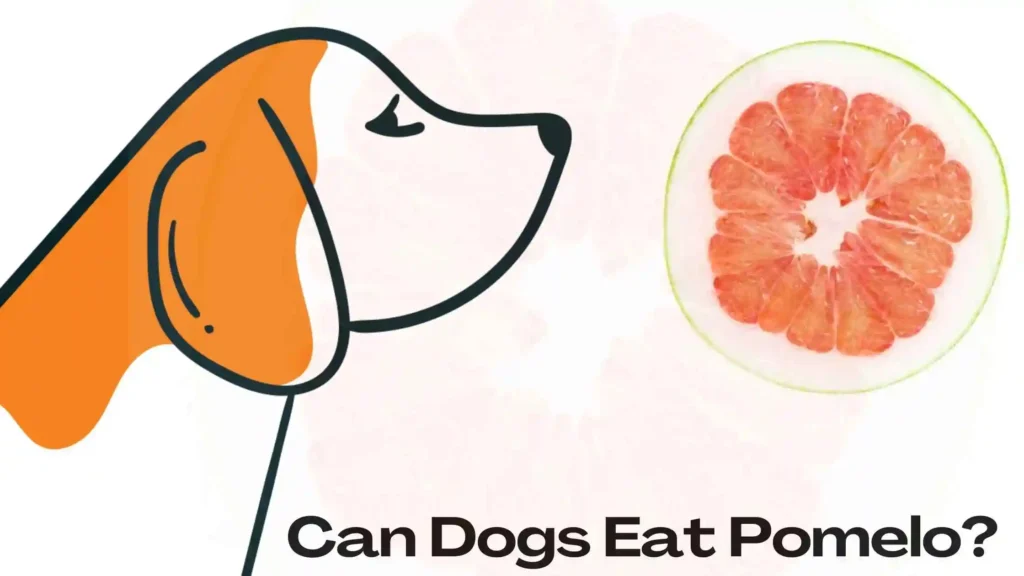
Can Dogs Eat Pomelo?
While growing on the trees, pomelo could be good for human consumption, but that is not the case with our good friend the dog. However, it is a great source of vitamins and fiber but it also contains some substances that are not good for the digestion system of the dog. Like many fruits, there are far too many instances in which small portions will not hurt most dogs, but moderation should still be employed.
Pomelo vs. Grapefruit
Strictly speaking, pomelo and grapefruit share striking similarities in appearance and are related but are not the same. Grapefruit is known to have a higher tase acidity level than pomelo. But nutritionally, how does each fit for the dogs?
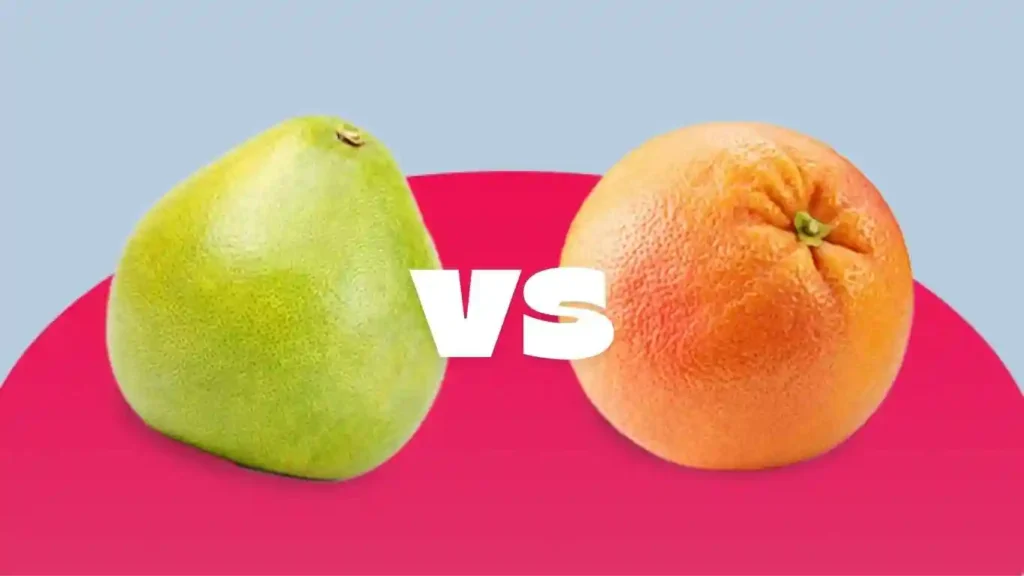
Key Nutritional Differences
| Feature | Pomelo | Grapefruit |
|---|
| Acidity | Lower acidity compared to grapefruit | Higher acidity |
| Bitterness | Contains lesser amounts of bitter compounds like nonanol and nonenal | Contains more bitter compounds (nonanol and nonenal) |
| Sugar Content | Rich in sugar | Also rich in sugar |
| Fibre Content | High fibre content | High fibre content |
| Effect on Dog’s Stomach | Less likely to stress a dog’s stomach due to lower acidity and bitterness | More likely to cause stomach stress due to higher acidity and bitterness |
| Digestion Concerns | Can induce digestion issues in large quantities (due to sugar and fiber) | Can induce digestion issues in large quantities (due to sugar and fibre) |
Potential Benefits of Pomelo
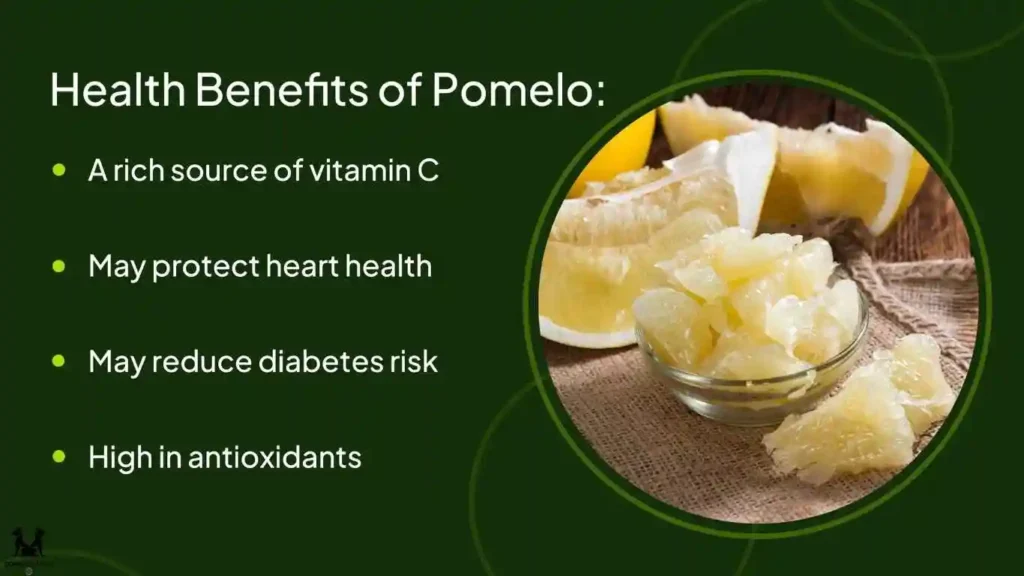
Can Dogs Eat Pomelo? If consumed in moderate amounts, pomelo is said to have had certain health advantages as does any other fruit. It contains many vitamins such as vitamin C that increase the immunity of dogs. The fiber may also help in digestion and this is only true when one eats a small portion of it.
Potential Risks of Pomelo
Conferring with feeding pomelo to your dog, the dangers surpass or exceed the advantages on most occasions. If the consumption is done to a larger extent, some of the side effects may include stomach upset, and diarrhea, and in the long run, it may lead to obesity because of the sugars contained in it. Further, the citrus acids might have an unfavorable outcome on your dog’s digestive system.
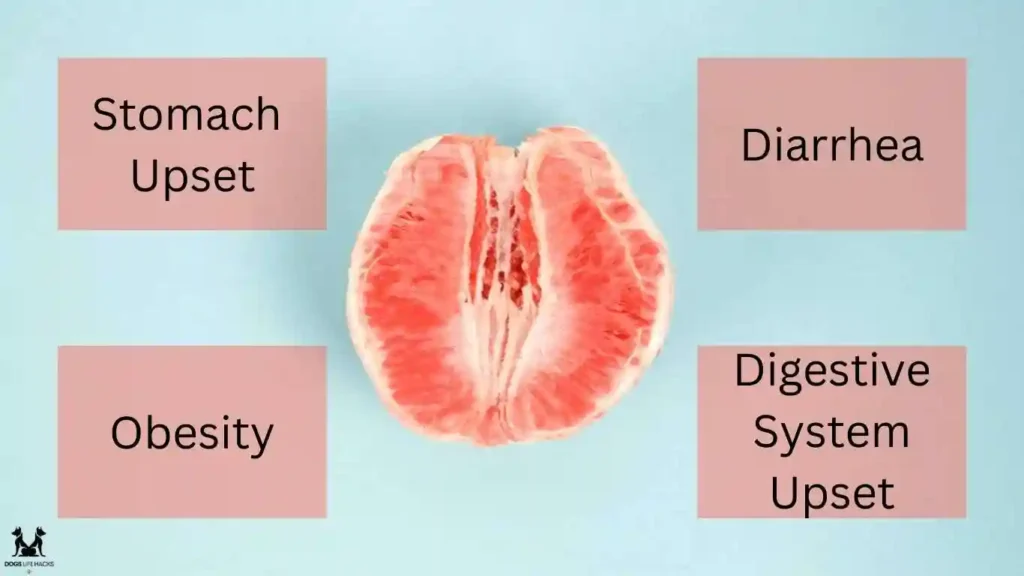
Pomelo Is Not Toxic To Dogs
Can Dogs Eat Pomelo? Well, relax, know that pomelo is not poisonous to dogs! However, in not being toxic, it still has its fair share of danger. Despite possible risks of stomach upset and the like, you should be rather careful feeding your dog with pomelo.
Is Pomelo a No-Go for Dogs?
Can Dogs Eat Pomelo? Pomelo turns out to be undesirable for your dog because it is not the best snack to give them. Dog owners also need to be aware of having their dogs fed with this fruit from time to time as it may lead to severe harm to your pet. It is advisable to stick to innocuous fruits which your dog can readily eat such as apples or blueberries.
🍊 The Scoop on Citrus and Canines
Dogs avoid citrus fruits and fruits in general and there is a good reason as to why they do so. Fruits such as pomelo are also not good for dogs since they have high acid and sugar content which can lead to digestion problems in dogs. The need to moderate will be explained in this section.
🍊 Pomelo Specifics: What’s in It for a Dog?
Pomelo contains other nutrients such as vitamin C, potassium, and fiber. These are good for human consumption but not for dogs especially when taken in large quantities.
Nutritional Composition
| Nutritional Aspect | Value per 100g of Pomelo | Impact on Dogs |
|---|
| Calories | 38 calories | Low-calorie, but doesn’t offer essential nutrients. |
| Carbohydrates | 9.6 grams | Too high for dogs, can lead to digestive issues. |
| Dietary Fiber | 1 gram | Excessive fiber is not necessary for dogs’ diets. |
| Sugar Content | High | High sugar levels can be harmful to dogs’ health. |
| Overall Conclusion | – | Pomelo’s high sugar and fiber make it unsuitable for dogs. |

How Pomelo Might Affect Dogs
Can Dogs Eat Pomelo? Foods that are high in pomelo can cause some people to have bloating, diarrhea or even vomiting. On the base category, it also has a little acidic content which might lead to some irritation or soreness or even worse, the worsening of existing conditions such as canker or acid reflux in dogs.
👩⚕️ The Vet’s Perspective
Yet, there are some prejudices against using citrus fruits as the main pieces of advice given by veterinarians state that it is better not to feed dogs with them. Even though pomelo juice has less acidity as compared to other citrus fruits, it can have similar effects such as leading to digestive upsets or even weight gain in the long run.
Understanding the Risks
Can Dogs Eat Pomelo? They contain a high quantity of sugar and digestive upsets which are not ideal for your dog. The idea is moderation, but still, it is better to check with your veterinarian to feed it as a snack.
🐶 The Not-So-Sweet Side of Pomelo
Can Dogs Eat Pomelo? Even though pomelo is not as acidic as grapefruit, it also has certain dangers here. Such risks include stomach upsets, dental caries, and obesity brought about by the intake of sugar. It is always wise to be careful when incorporating new fruits into the diets of your dogs.
🐾 The Possible Pooch Problems
Can Dogs Eat Pomelo? If your dog eats too much pomelo then they can develop symptoms like vomiting, diarrhea, or lethargy. These symptoms are quite common and they often subside on their own independently but it is always wise to avoid such incidences.
Dog Ate Pomelo: What’s Next?
In case your dog consumed pomelo somehow, you should also observe your pet’s activity levels for discomfort. If they consumed a large amount they may suffer from a bit of diarrhea and nausea which is normal after taking that sort of thing.
🐶 First Aid for Furry Friends
If your dog experiences some inconvenience after consuming pomelo, all you can do is provide him or her with more water and make it take a break. If they do not subside, then you should consult your veterinarian.
🏥 Vet Visit: When to Ring Up the Doc
If the symptoms such as vomiting, diarrhea, or becoming very lethargic continue for more than 24 hours then you need to seek advice from your veterinarian. They can advise the next steps of action to be taken on the symptoms and whether a follow-up is required.
Can Dogs Have Grapefruit?
Similar to pomelo, grapefruit is not poisonous but they come with more dangers because of their higher acidity and bitterness.
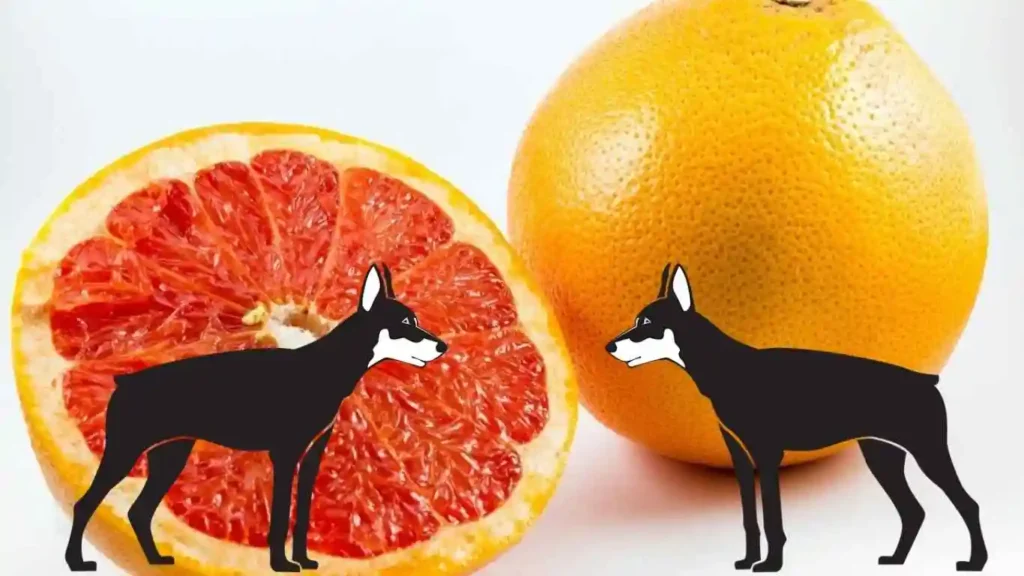
Dogs and Grapefruit Peels
Grapefruit has a thicker skin as compared to oranges and is more difficult for the dog to digest, it also poses the danger of blockage in the intestines. Never feed your dog this fruit particularly the skin part of it.
What to Do If Your Dog Eats Grapefruit?
The consumption of grapefruit should be closely observed if your dog has had a chance to eat it. Grapefruit is also less healthy as it can lead to severe GI upset compared to the effects of pomelo, so do contact the vet if your dog shows some bad signs.
How to Safely Share Citrus With Your Dog
If you’re to feed citrus fruits to your dog, do it sparingly and in limited quantities only. Do not feed your dog avocados in any form without first removing the peels, seeds, and even membranes from it.
Which Fruits Are Safe for Dogs?
Safe fruits include apples, blueberries, and bananas. Hence we get the same nutrients as those found in citrus fruits but without the side effects.

Which Fruits Are Not Safe for Dogs?
Do not feed your dog grapes, raisins, and cherries. They are toxic to your pet’s health. These said fruits may be poisonous and detrimental to one’s health.
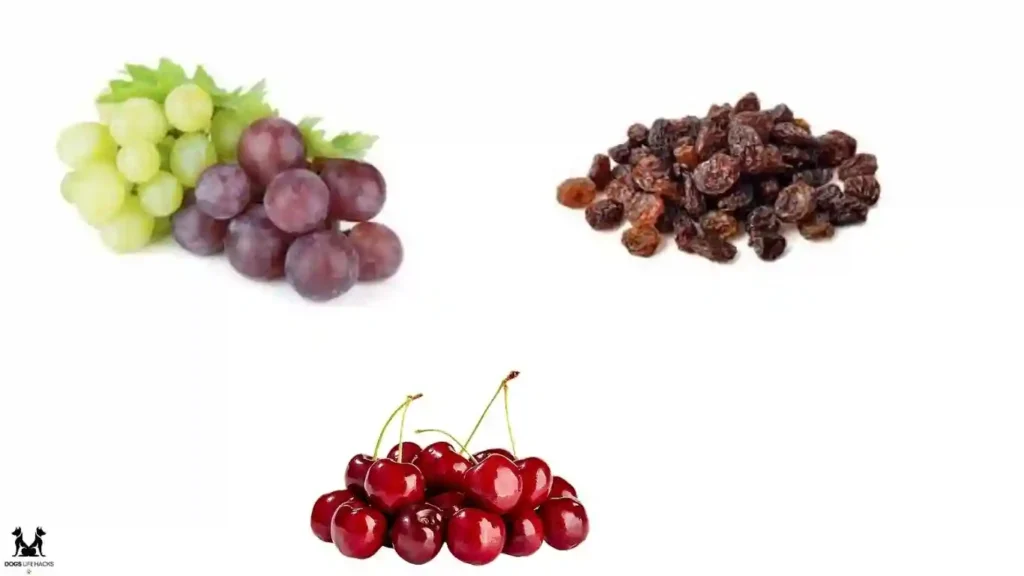
Citrus Fruits for Dogs?
Common fruits such as oranges and lemons should be incorporated in limited quantities in the diet. Though they are not considered poisonous, due to very high acidic levels they can irritate.
Vitamins, Yes Please – Acid, No Thanks
Vitamins in citrus fruits are good for the dogs’ health, but the acid is unhealthy for the dogs. Consider taking other fruits that are rich in vitamins that do not have bad effects on your dog’s stomach.
Final Thoughts
Pomelo could also be administered to dogs in limited or very small quantities, though this is also inadvisable. It is always advisable to speak to the vet before feeding your dog with new foods including citrus fruits.
Frequently Asked Questions
Is citrus toxic to dogs?
Some foods and beverages with high levels of citric acid are oranges, grapefruits, berry products, and lemons. Although citric acid is safe for consumption by humans once in a while, it is different from dogs. Even a couple of these fruits are going to give your dog an upset stomach.
Who should not eat pomelo?
The sour citrus fruit, pomelo, is good for the heart but a word of caution for those who are on statin for cholesterol. Furanocoumarins contained in pomelo fruits reduce the ability of your body to metabolize statins. And these same compounds are also in grapefruit.
Is it safe for dogs to eat grapefruit?
The chemical substance that is toxic for dogs is psoralen – grapefruits contain it. The skin, core, and white membranes of the grapefruit are the most poisonous tissues of the fruit. Since grapefruit is toxic to dogs, your pet may suffer from diarrhea and vomiting, kidney diseases, weight loss, and photosensitivity.
Are limes ok for dogs?
Limes are unsafe for canine consumption. Every single component of these lime-like green fruits is poisonous to the canines and can lead to lime toxicity. Limes are not safe for your dog because of the high content of citric acid that can upset their stomach as well as the essential oils contained in the fruit.
Why does my stomach hurt after eating pomelo?
If after consuming pomelo you feel a tingling or itching in the mouth, developing rashes like hives, eczema, stomach aches and pains, nausea, vomiting, and diarrhea these are some of the possible symptoms of an allergic reaction. Some people may develop respiratory symptoms which may include sneezing, nasal congestion, or even asthma-like symptoms.
Related Blogs
- Safflower Oil For Dogs – Boost & Transform Dog’s Health!
- How to Soothe Dog With Itchy Ears – Here’s the Solution
- Delicious & Good Snacks For Dogs For Happy & Healthy Pets
- Can Dogs Have Almond Milk? Find Dangerous Surprising Truth!
- How Much Zyrtec Can I Give My Dog: Safe Dosage and Benefits
- Easy Dog Eye Discharge Home Remedy to Avoid Vet Visit
